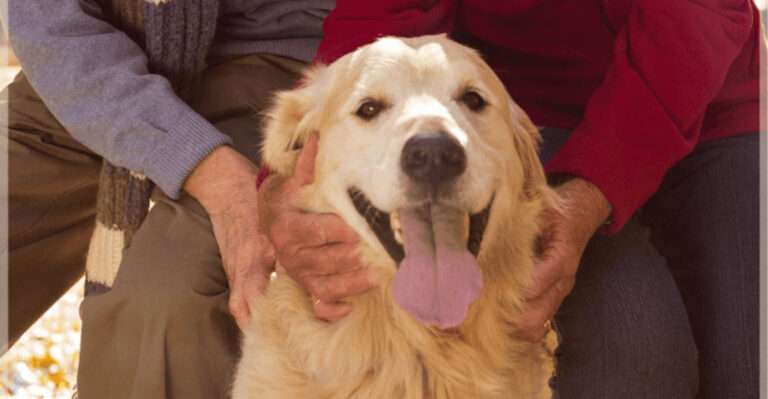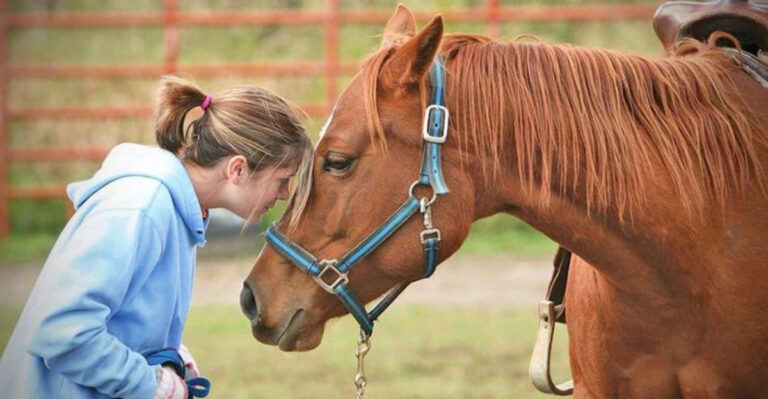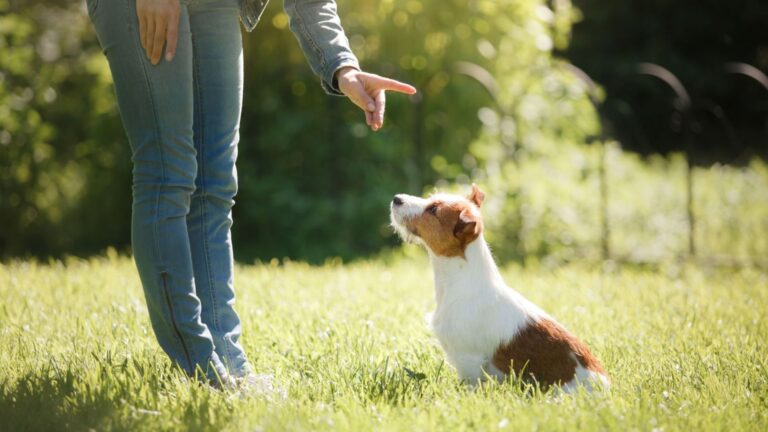15 Reasons Why Labrador Retrievers Are The Worst Dogs Ever
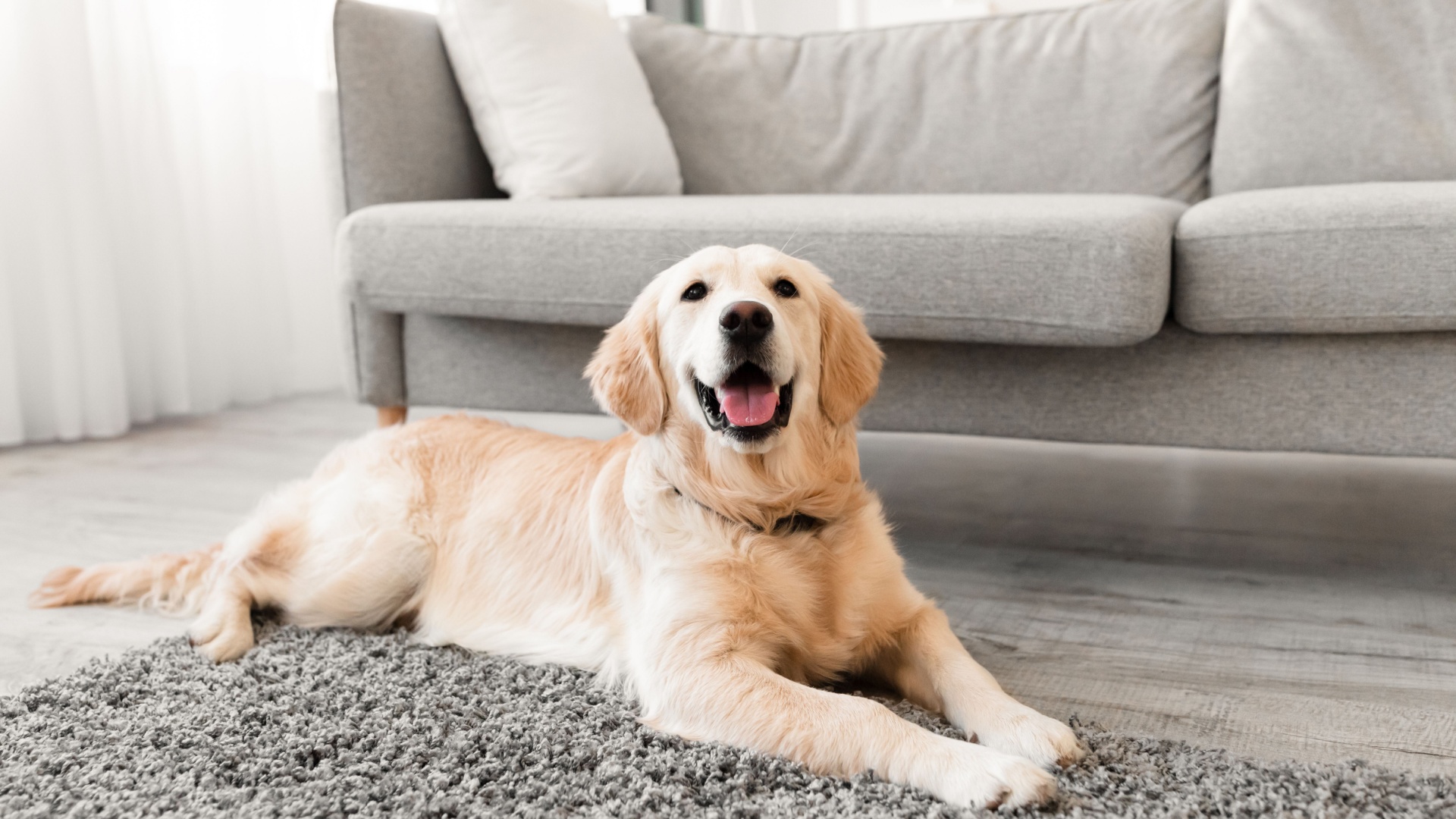
It sounds pretty unimaginable, but the ‘‘Why Labradors are the worst dogs’’ dilemma is out there! That’s right. As much as we hear that Labrador Retriever puppies are among the greatest dog pets in the world, their maintenance can be a true nightmare at times.
The rationale behind their high maintenance lies in a plethora of things. Throughout this article, we’re gonna identify thirteen most common reasons why you should reconsider having this breed in your home. Let’s take a ride!
1. They’re Excessive Shedders
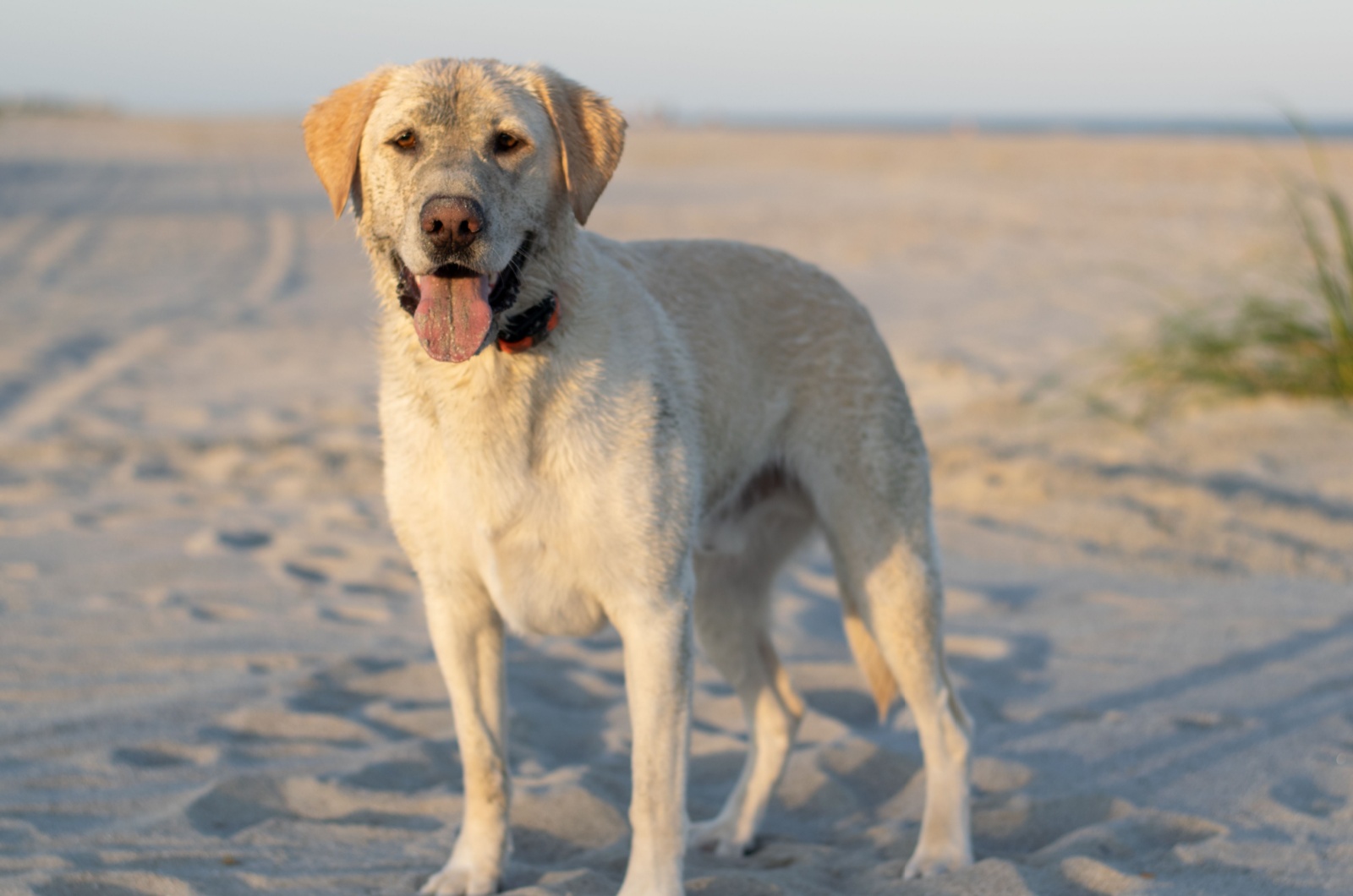
That’s right! These canines don’t qualify to be in the group of hypoallergenic dog breeds as they shed excessively, and their fur is not human-friendly. Even short-haired dogs of this breed shed, and are no exception.
As a matter of fact, Lab canines can be extremely messy dogs as their undercoat, dander, and dog saliva make living with them extremely overwhelming.
Expect to battle with balls of fur for several weeks during the spring as their thick winter coat turns into a summer coat. The same goes for the fall season.
The advice is to keep these canines groomed by brushing them at least twice a week, and bathing them every month or so. In comparison to other breeds, these canines require more frequent baths as they are prone to dirt by default.
In that regard, you should avoid dirty places, sand, dust, and mud. Labs just love exploring new things, which is why they won’t mind getting their paws into any kind of dirt.
2. Labs Can Be Overly Aggressive
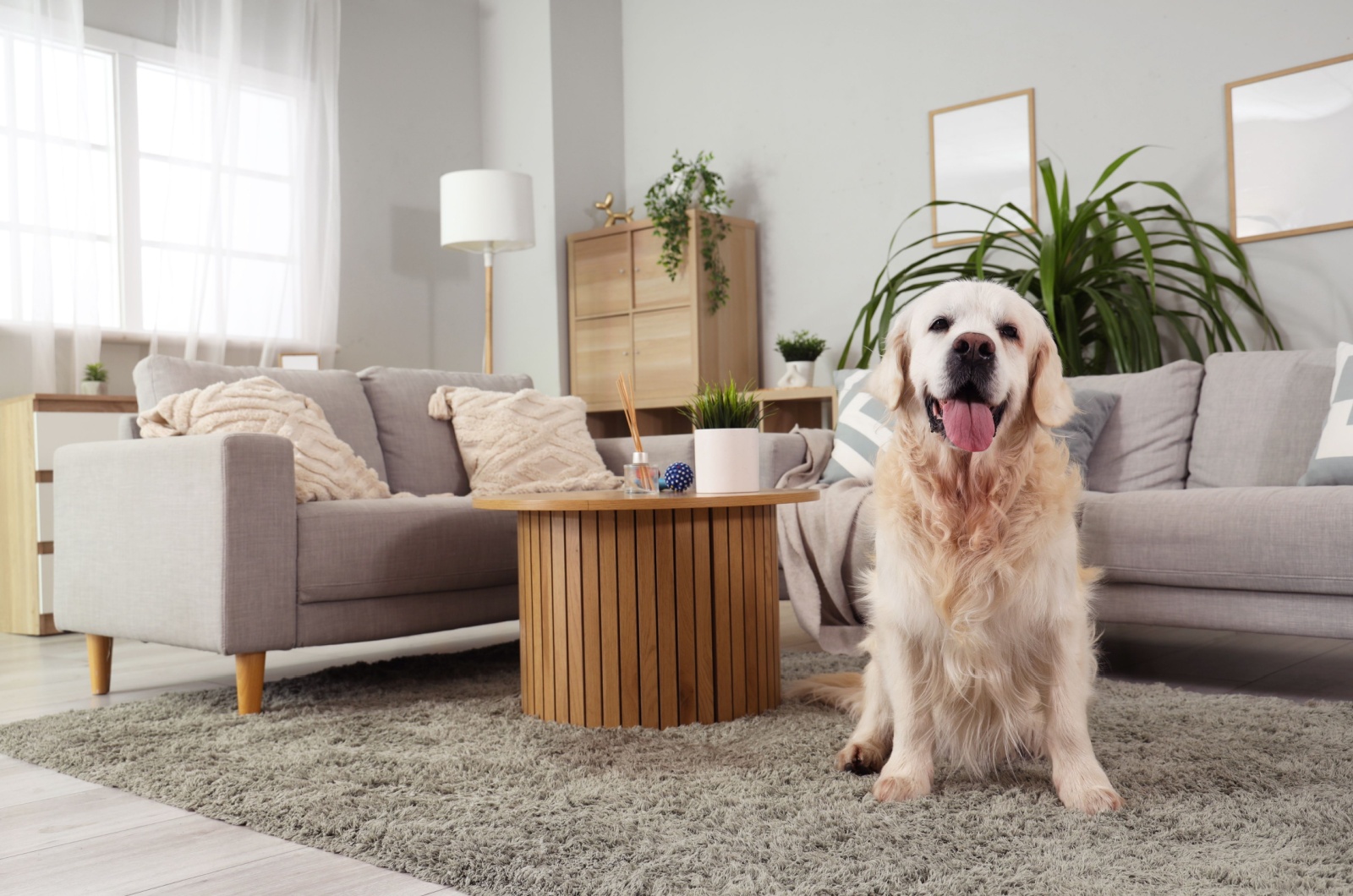
Even though it is highly unlikely for a well-trained Lab puppy to attack or to be aggressive, we can put the label of aggressive dog breeds on these canines in certain situations.
Just like Golden Retrievers, German Shepherds, and other family dogs – Lab puppies can display aggression as a result of improper parenting and poor socialization. In that regard, these canines require a lot of work, especially during the first couple of months.
A Lab breed of dog that is not socialized properly can be aggressive towards strangers, other house pets, and even young children. That’s why you should never avoid early socialization training in the first place.
Furthermore, these canines can be extremely sensitive when it comes to yelling or screaming. A triggered trauma can make a true beast out of your Lab companion. If I could recommend one thing, it would be this – don’t ever yell at your Labrador!
3. Separation Anxiety
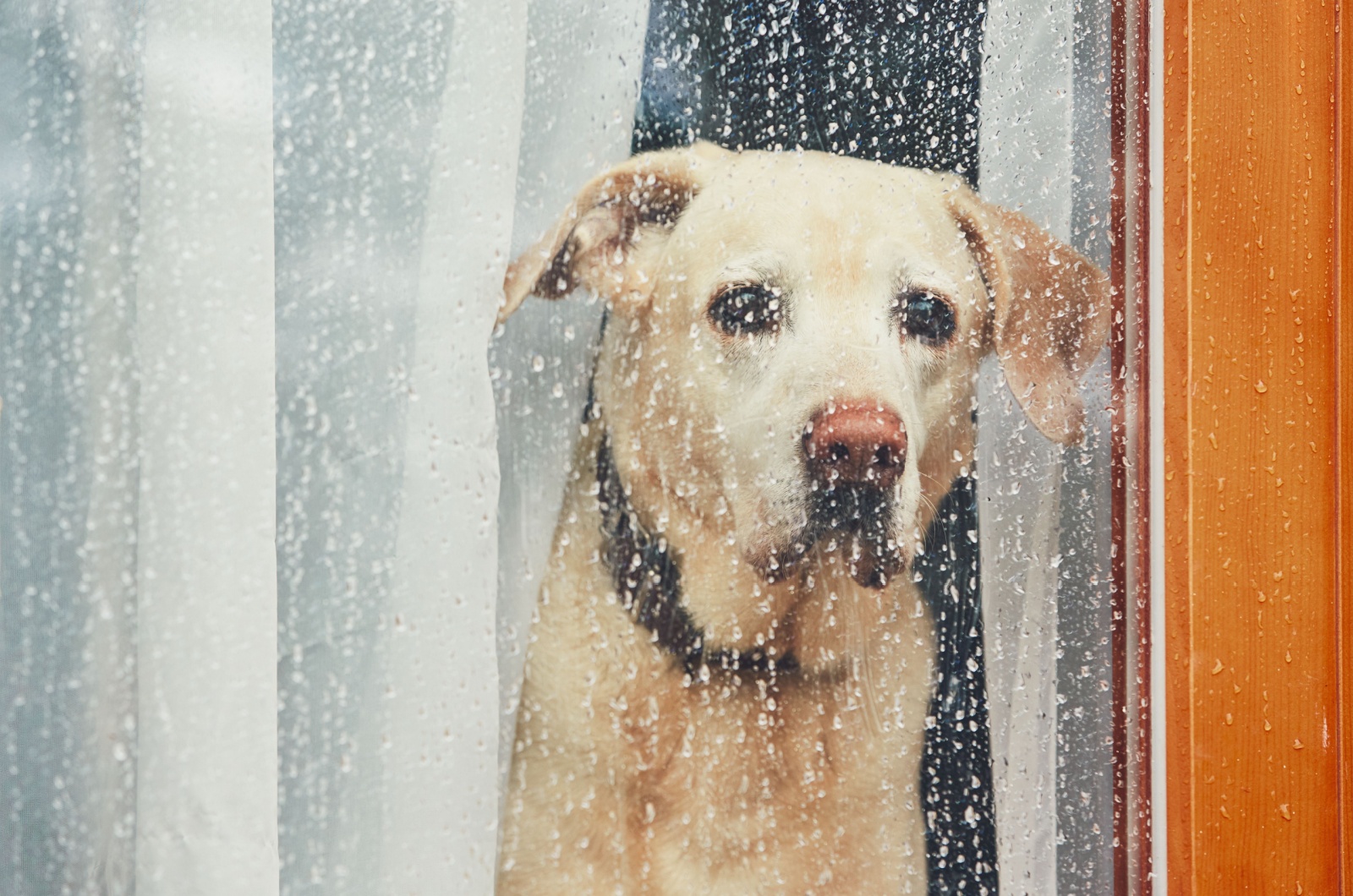
Have you noticed that your dog has been clingy lately? Well, the answer may be separation anxiety! Separation anxiety in dogs goes hand in hand with the possibility of aggression. Lab canines are extremely sensitive dogs that easily attach to their loved ones.
If you have a much too busy schedule to stick with your dog for the whole day – you may want to reconsider having a Lab puppy in the first place. These canines simply love spending every single hour with their owner, which can be extremely overwhelming.
In order to avoid these kinds of situations, you should train your Lab solitude during its puppyhood stage.
Chew toys, TV dog shows, or a fenced yard with an interactive playground are just some of the tools to help you get your Lab used to a few hours of solitude during the day.
Otherwise, you may deal with an extremely aggressive and self-destructive dog.
4. They Never Rest
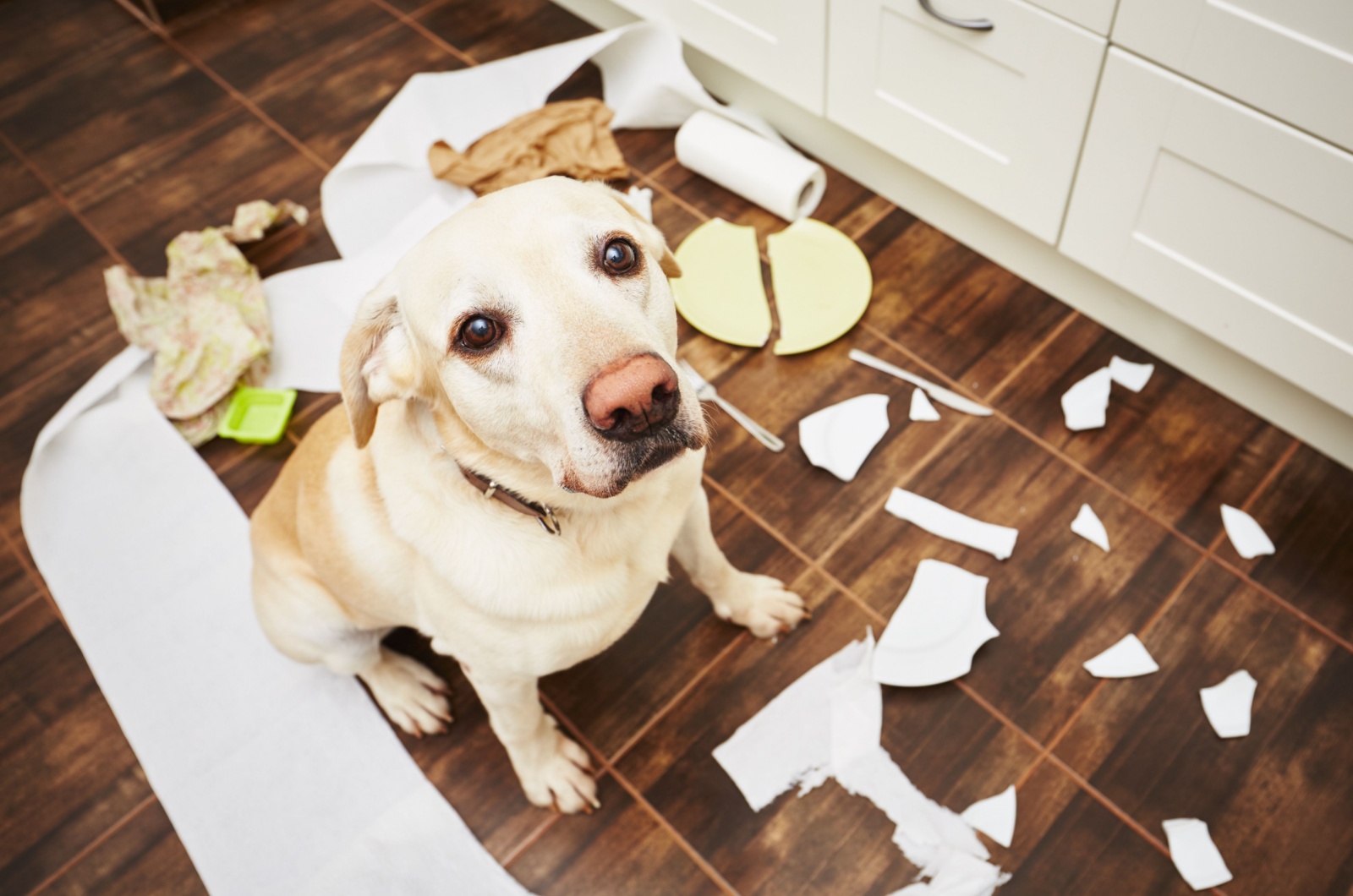
Yep, their high-energy nature is one of the Lab’s trademarks, and there’s nothing you can do to change that! They are what they are! In fact, trying to make a lazy couch potato out of your Lab puppy can have negative implications in the future.
Inactive Labradors are generally referred to as obese Labs, aggressive Labs, or frustrated Labs.
Inactivity truly brings out the worst in them, which is why you should reconsider having a Lab puppy if you’re not into a lot of exercise during the day. Getting a non-sporting dog breed would be a better choice in this regard!
If not given enough exercise during the day, Lab puppies can be one of the worst breeds to have in your home. They can chew, pee, and destroy as a sign of protest, which is something you don’t want in your pet.
5. They Get Bored Easily
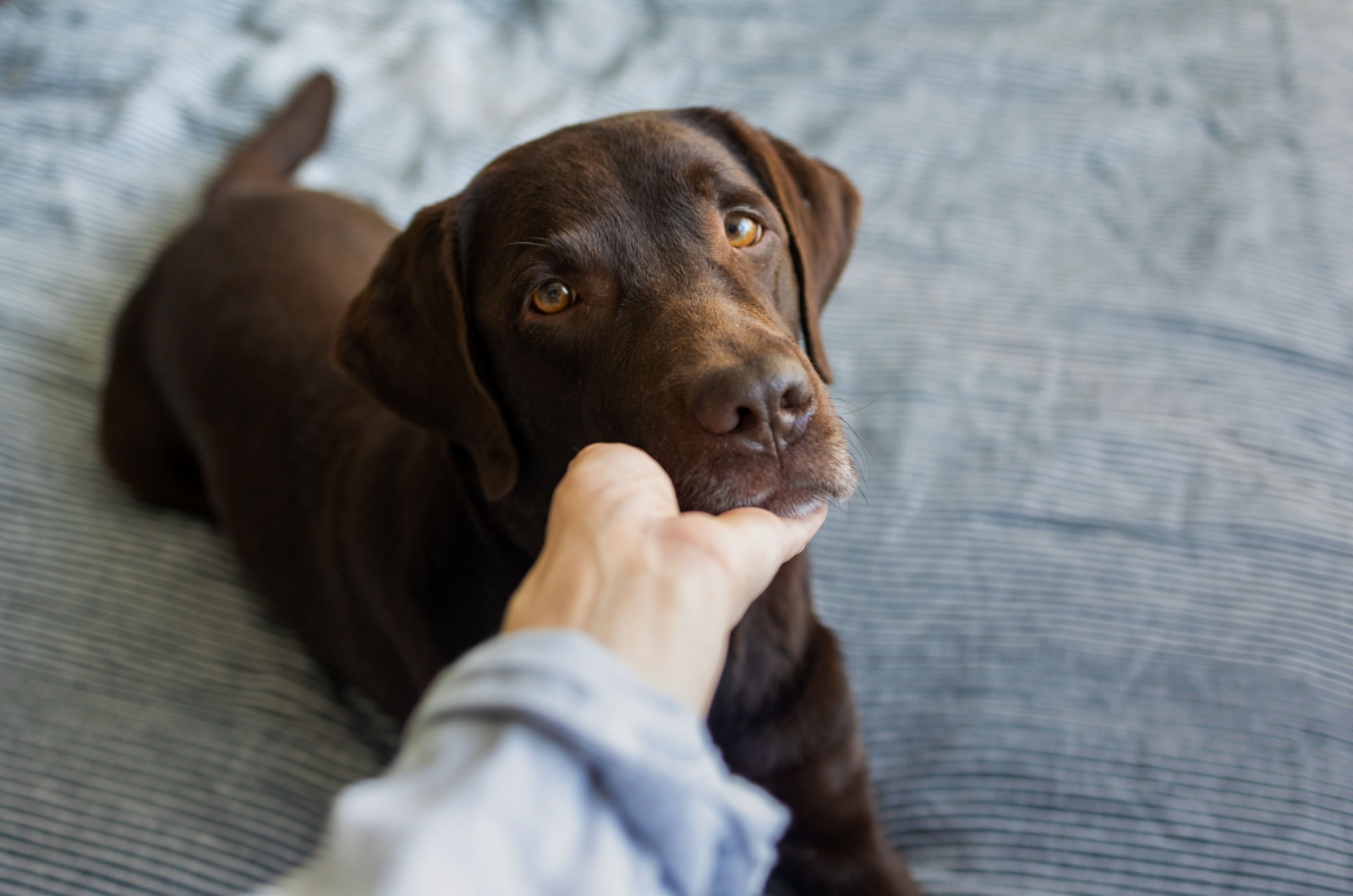
Even though these canines love having tons of exercise on a daily basis – Lab canines get easily bored, too!
The reason why Labs get easily bored lies in the fact that these canines are in the top 20 smartest dogs in the world. Therefore, you can’t simply neglect their mental stimulation needs.
They love being challenged, which is why any Lab owner should spend extra time coming up with new, creative ways of entertainment for their Lab canine.
Games, such as hide and seek, food puzzles, or treasure hunts are an excellent way to keep your Lab busy and stimulated at the same time.
Otherwise, you may deal with a frustrated dog that has very few hours of good behavior during the day.
6. Their Over-Excitement Leads To Disobedience
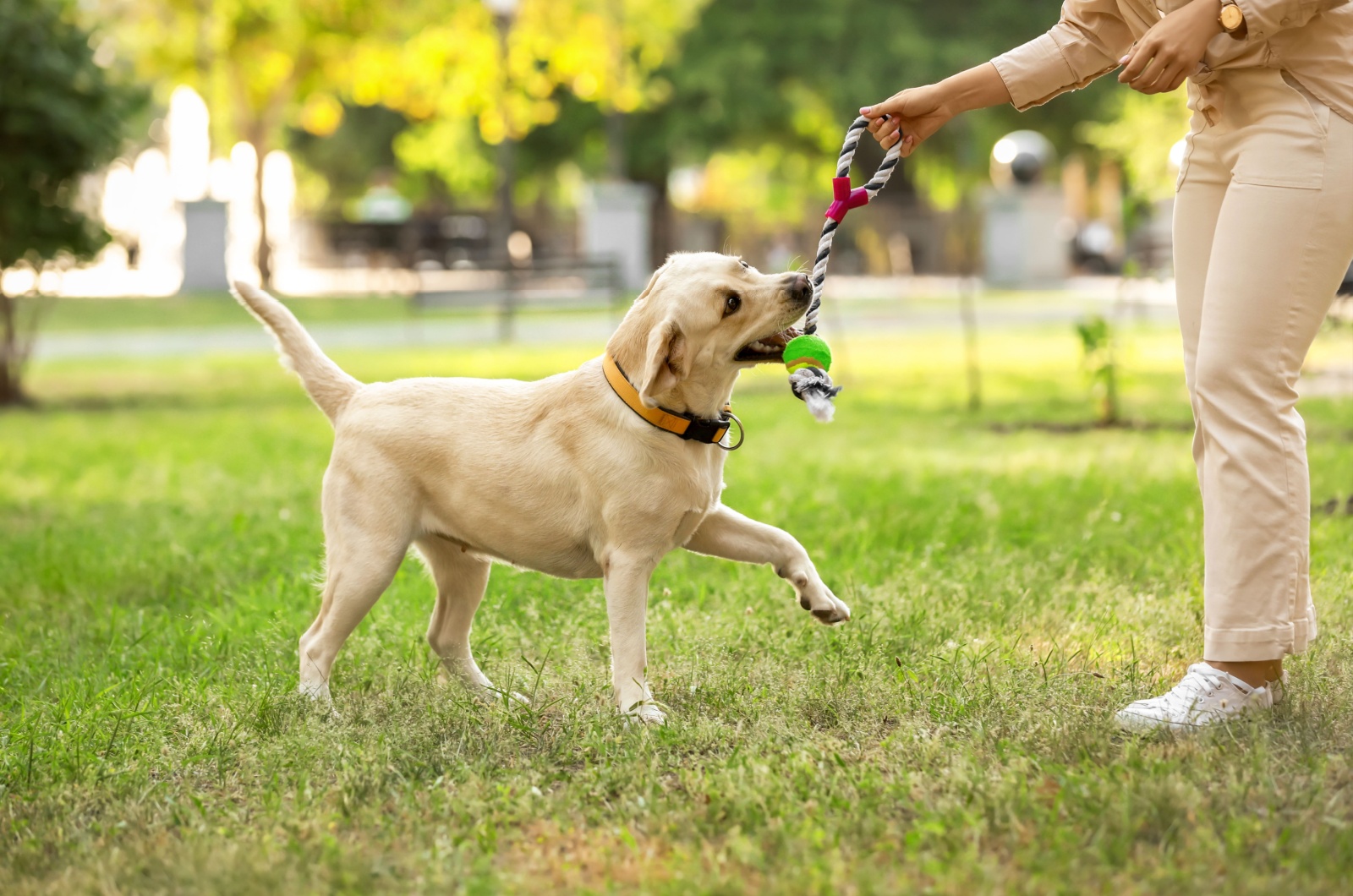
Another reason why Labradors are the worst dogs to have is the fact that they get over-excited way too much. This is an affectionate dog breed by nature, which is why they can come across as being a little bit too strong.
In that regard, you should never teach your Lab to use jumping, scratching, and biting as a sign of love! Otherwise, you can get hurt pretty easily as Labs are generally unaware of their size and power.
On the other hand, inadequately-trained Lab dogs can get too excited in public spaces or in the presence of other dogs. Labs that don’t go through obedience training are generally disobedient and hard to deal with.
You can start training your Lab as soon as you get it from the breeder. The use of interactive dog toys and dog snacks may help you in this regard.
7. A Plethora Of Health Problems
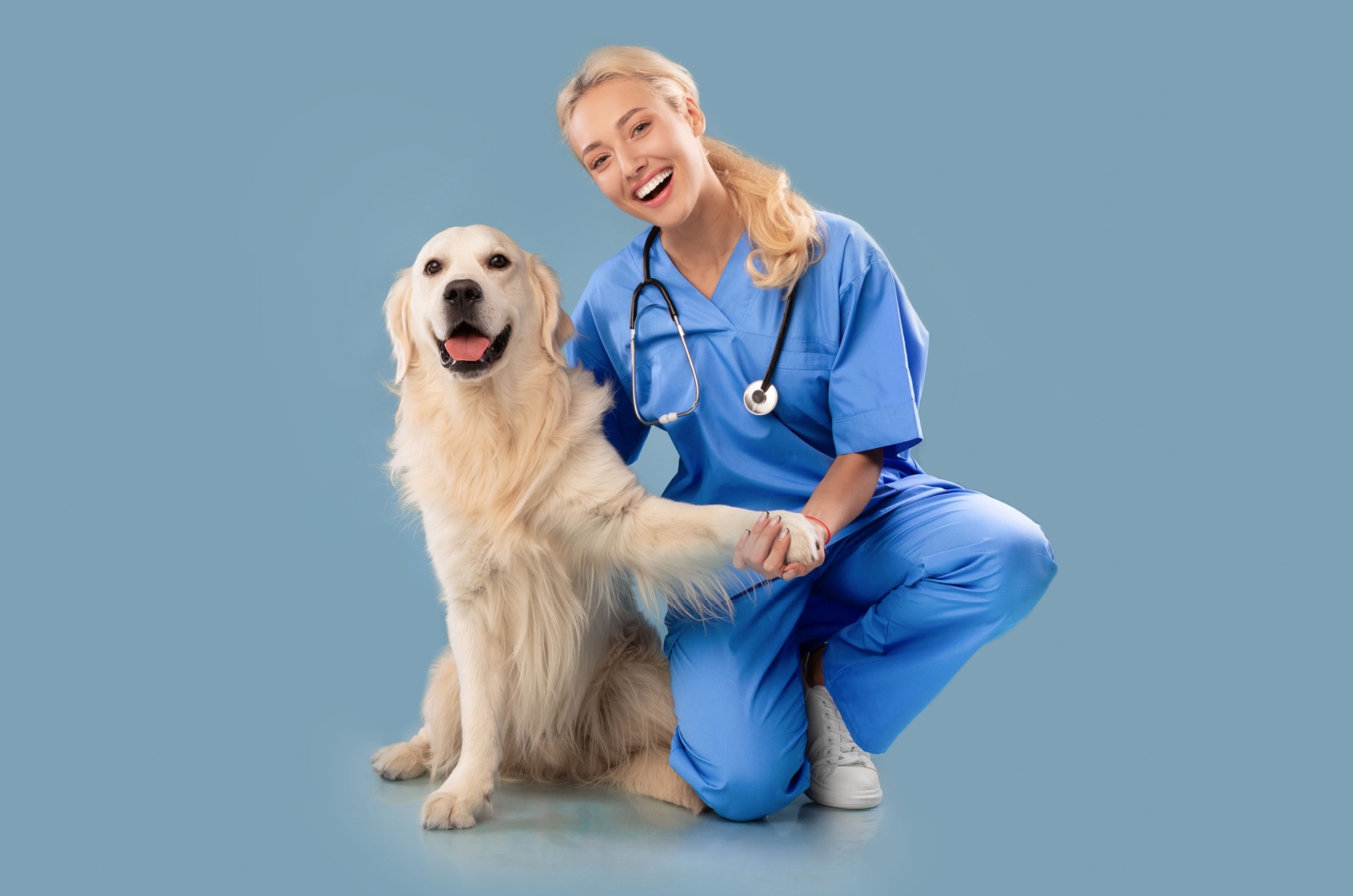
Even though the average lifespan of a Lab puppy revolves around twelve years, these canines come with a set of serious health concerns. Lab canines are generally prone to canine cataracts, hip dysplasia, bloat, obesity, and many others.
If you’re not planning to buy pet insurance once you get a Lab from a breeder – you will be making a huge mistake! Lab healthcare costs can be extremely high, which is why getting pet insurance would be a smart choice to make.
These canines require careful maintenance as well as a properly-designed feeding chart. Bad dieting and an inadequate exercise plan are two most common external factors for obesity and bloat in these canines.
On the other hand, hip dysplasia, as well as canine cataracts are hereditary issues that can be worsened by bad dieting and a poor lifestyle.
8. They Require Plenty Of Space
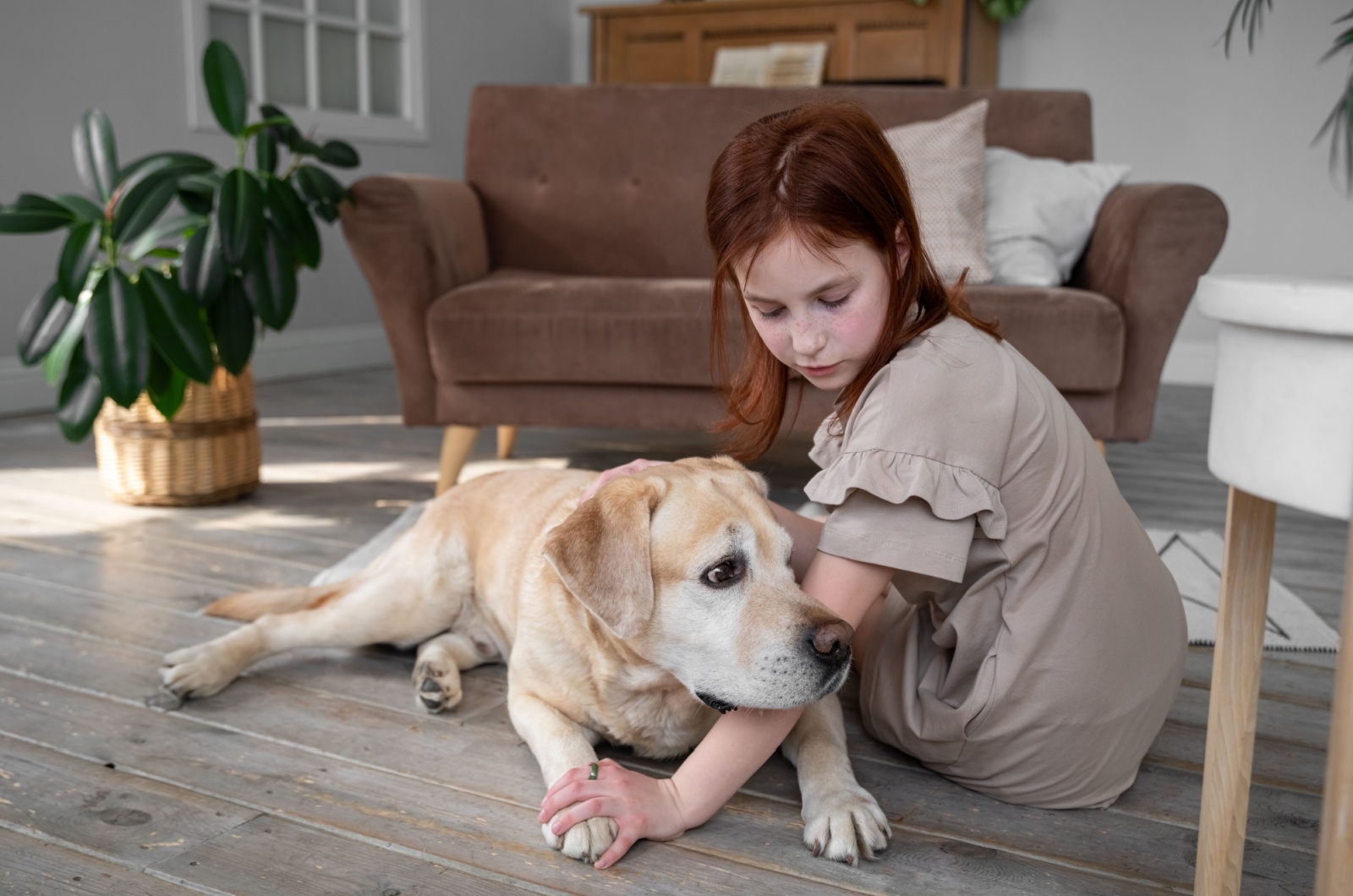
The ‘‘Why Labradors are the worst dogs’’ question lies in the fact that this is a medium to large breed that requires plenty of space. Labs are not lap dogs. Quite the contrary – they need to move for the most part of the day, which is part of their nature.
If you’re living in a small city apartment or a studio, the advice is not to get one! Rather, choose a smaller breed that doesn’t have as much exercise needs, and doesn’t require as much space.
Closed in Labradors are one of the worst pets that you can deal with. These canines are just not happy being indoors the whole day, which is why you need to take them out at least once or twice a day.
Inadequately-exercised Lab puppies can be a true nightmare for their owner. Excessive barking, scratching, chewing, or even aggression are just some of the protest signs Labs use when they want to make a point.
This is quite a temperamental dog breed that communicates its feelings clearly.
9. They Are Prone To Obesity
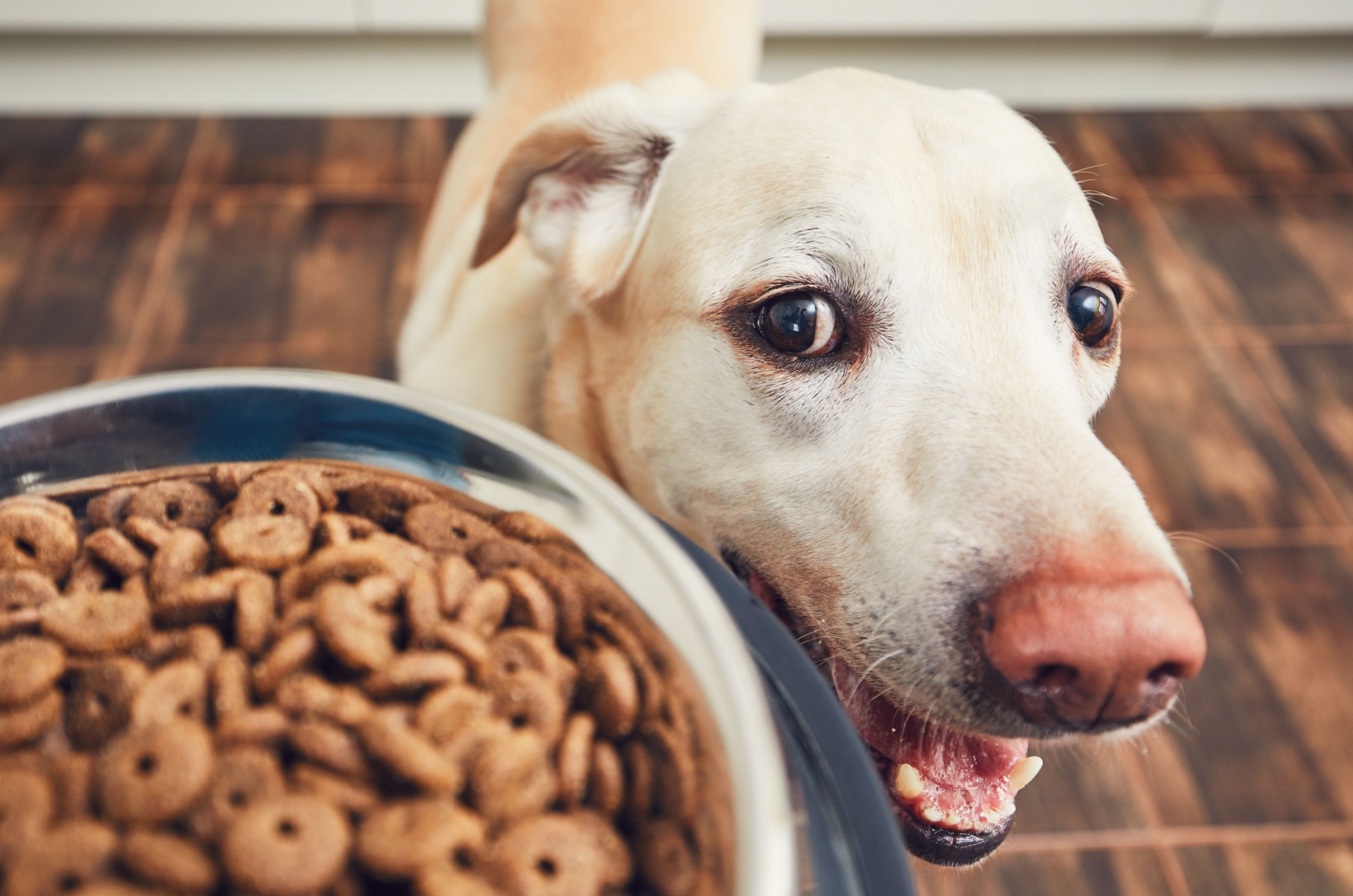
It may sound contradictory, but Lab canines are indeed prone to obesity despite their highly active nature. These canines have an extremely high food drive, which is why they will devour anything that comes their way.
Lab canines that don’t have a properly-designed diet are generally prone to excessive weight gain. This especially refers to puppies that eat table scraps, junk food, or poor-quality dog food purchased from the market.
Unfortunately, obesity in Labs is one of the main triggers of diabetes, heart disease, and even cataracts. Labs that don’t have an adequate dieting plan tend to live shorter, as well as Labs that lack exercise.
10. They Are Food-Sensitive
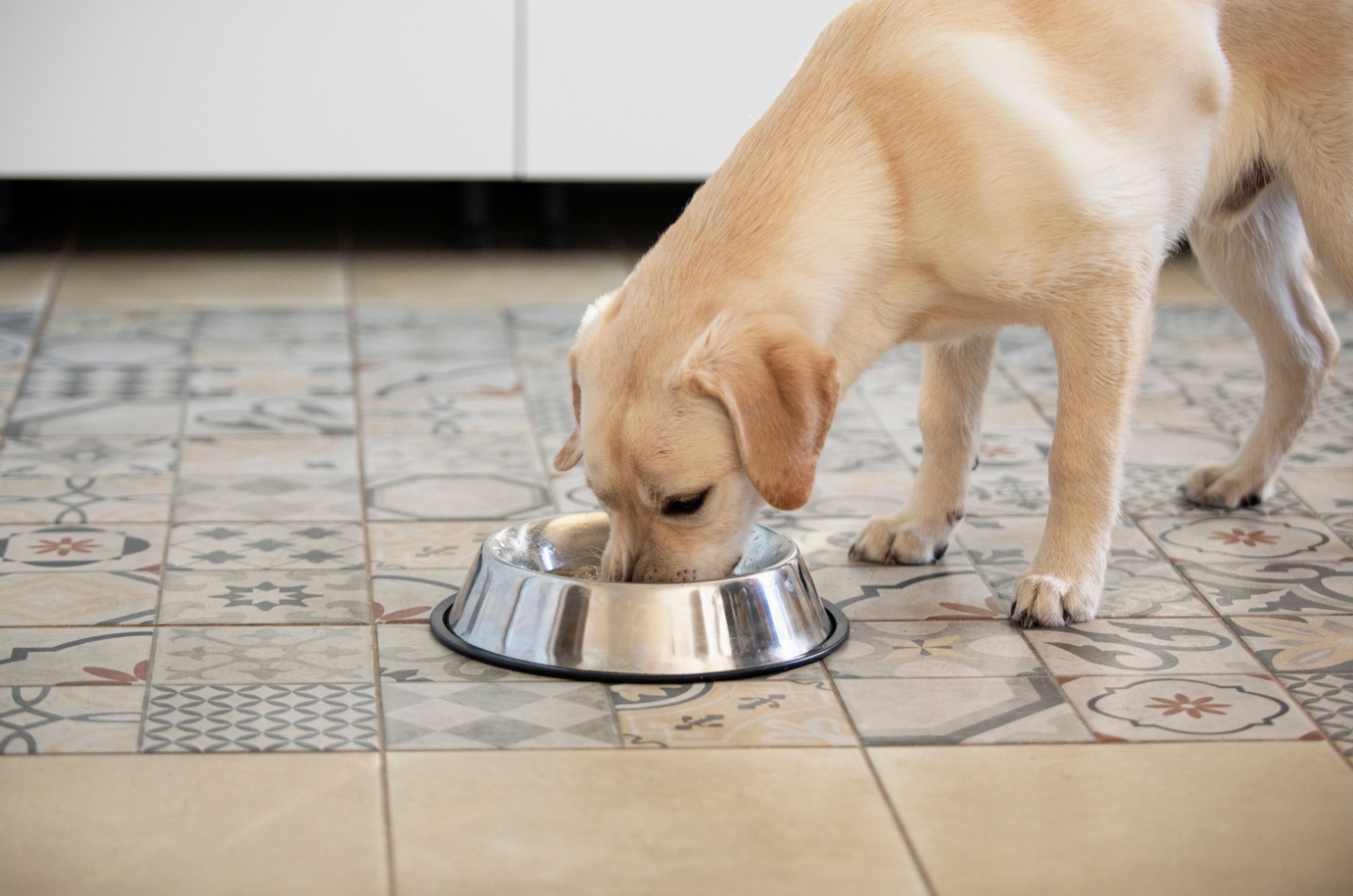
Even though Lab canines are voracious eaters, their stomach tells a different story. This is an extremely sensitive breed when it comes to certain dog foods such as eggs, soy, wheat, and dairy products. Some Lab canines are even allergic to chicken and beef.
Choosing the best dog food for your canine would be a smart choice, but at the same time, it can be extremely overwhelming.
The reason why Labradors are the worst dogs at times is the fact that you need to spend a lot more time planning their diet and choosing Lab-friendly foods.
Otherwise, you may deal with severe repercussions such as dog diarrhea, stomach torsion, vomiting, excessive weight gain, diabetes, eye problems, and heart disease.
11. Costs Of Having A Lab Are High

The initial price that you can expect to pay for your future Lab companion revolves between $700 and $2000. This is quite an expensive price to pay considering that Labs are one of the most common house dogs in the world.
On the other hand, paying for the puppy itself is not enough as you need to take into account other things such as health exams, vaccinations, deworming, microchipping, a dog bed, a leash, a litter box, food, grooming tools, and dog snacks.
These canines generally eat more than some other family dogs as they need more food to maintain their high energy. Furthermore, you can expect to spend some extra money on a Lab’s healthcare as these canines are prone to a whole set of health issues.
Additionally, if you want to train your Lab puppy right from the start, you may need to buy several training tools, such as a dog training collar or playground equipment. All of these things require additional spending that doesn’t seem affordable.
12. Untrained Lab Puppies Can Be Stubborn
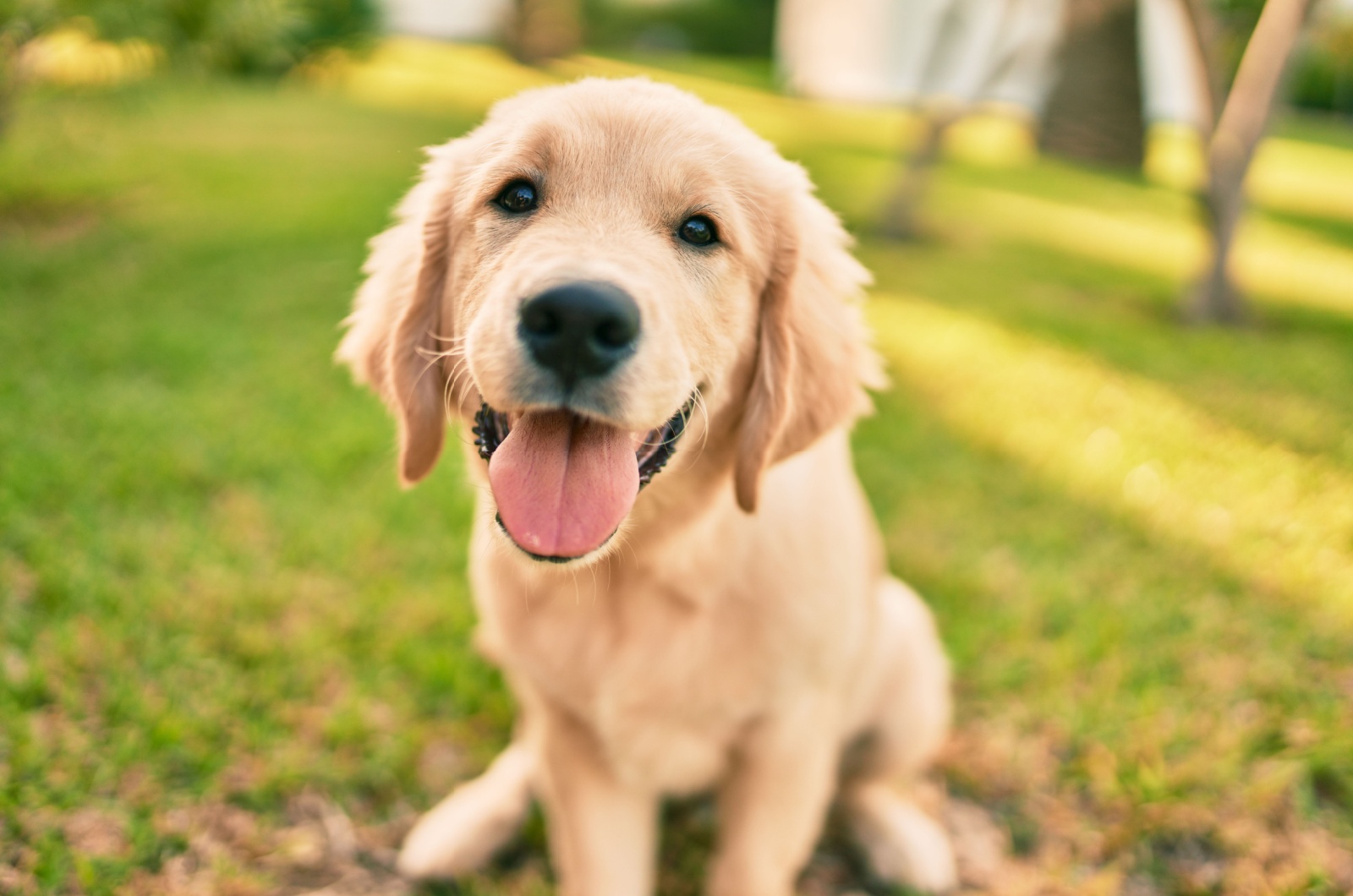
One of the major reasons why Labradors are the worst dogs to live with is the fact that they can be extremely stubborn. This especially refers to untrained puppies, which is why you want to start with Lab training as soon as possible.
Generally, it is much easier to train your dog to socialize during puppyhood as socializing an aggressive dog in the adulthood phase is much more complex.
The same goes for obedience training. Despite the fact that the Lab qualifies among the most intelligent canines – they can be overly stubborn if not timely trained. Training an adult Lab dog requires a lot of patience, commitment, and energy.
One of the best choices that you can make when buying a Lab puppy is choosing a reliable Lab breeder.
This way, you can save yourself from spending countless hours on your dog’s socialization as puppies purchased from reliable kennels are generally socialized at eight weeks of age.
13. They Mature Slowly
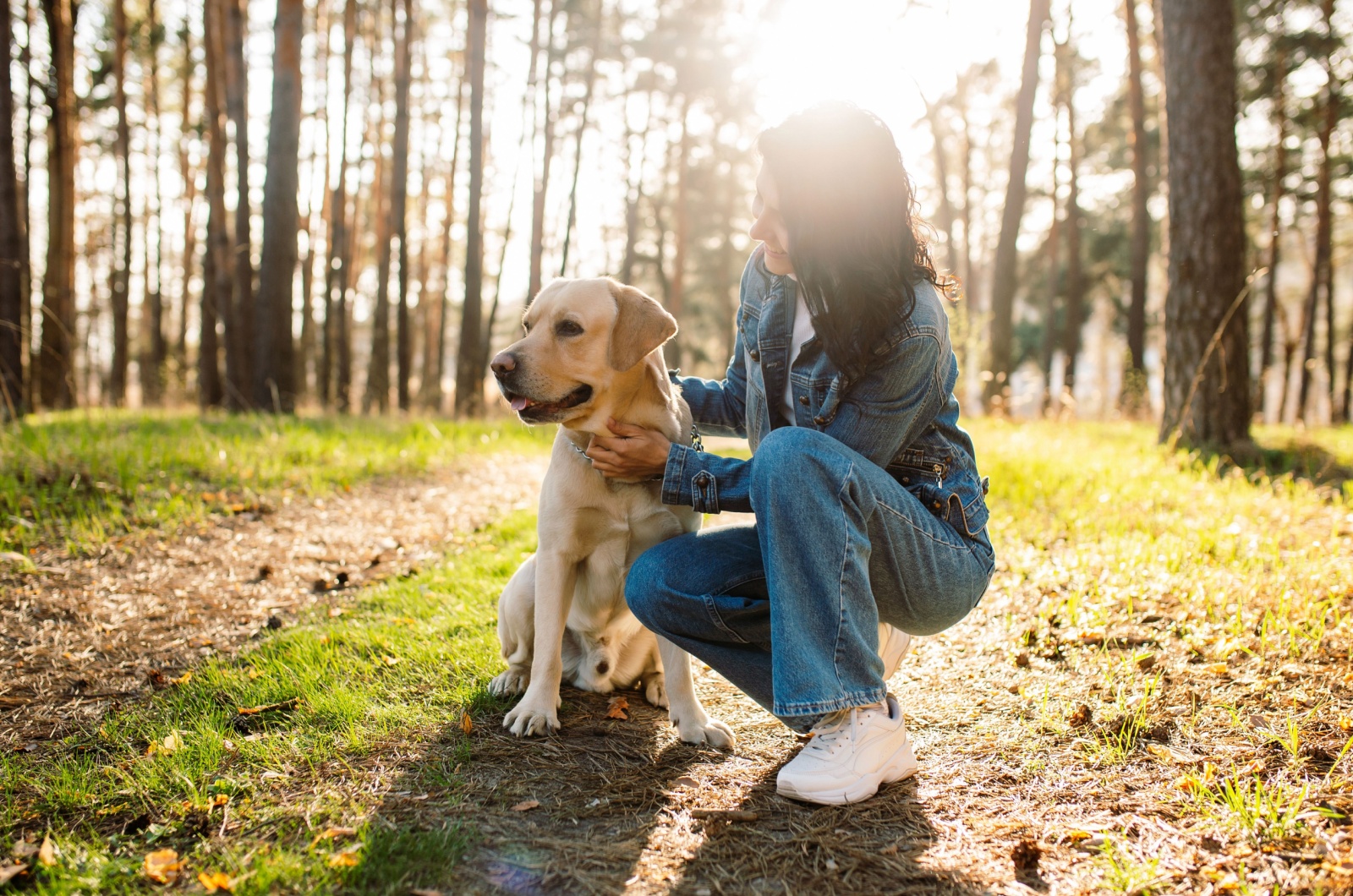
The last rationale for ‘‘why Labradors are the worst dogs’’ lies in the fact that these canines mature quite late. You may spend countless hours wondering when puppies get easier, but you won’t find a proper answer as every dog is a different story.
That said, Lab canines may take some extra time to mature fully as they generally don’t set at two years of age or so. Generally, female Lab puppies find their pace much sooner, but again – it’s all relative!
Unlike some other dog breeds, you can expect your Lab companion to be overly active for the first several years. In that regard, you need to pay attention to your dog’s exercise needs as not giving as much exercise to your dog as needed may prolong your misery.
On the contrary, Labs that burn off a lot of energy during training sessions are most likely to be calmer for the rest of the day.
14. They’re Not The Best Guard Dogs

While Labs are loyal and protective, they are far from the best guard dogs. Their friendly and affectionate nature often makes them more likely to greet strangers with excitement rather than any sense of caution.
While they may alert bark when someone is at the door, you won’t see them charging at intruders or aggressively protecting their territory. Labs typically trust people and may even be eager to make new friends, which makes them wonderful family dogs but not necessarily the type of dog to keep your home safe from burglars.
Their instinct is to approach with curiosity rather than with the aggressiveness that is expected from more traditional guard dog breeds. If you’re looking for a dog that will protect your home, you might want to reconsider the Labrador.
15. Labs Have Boundless Energy
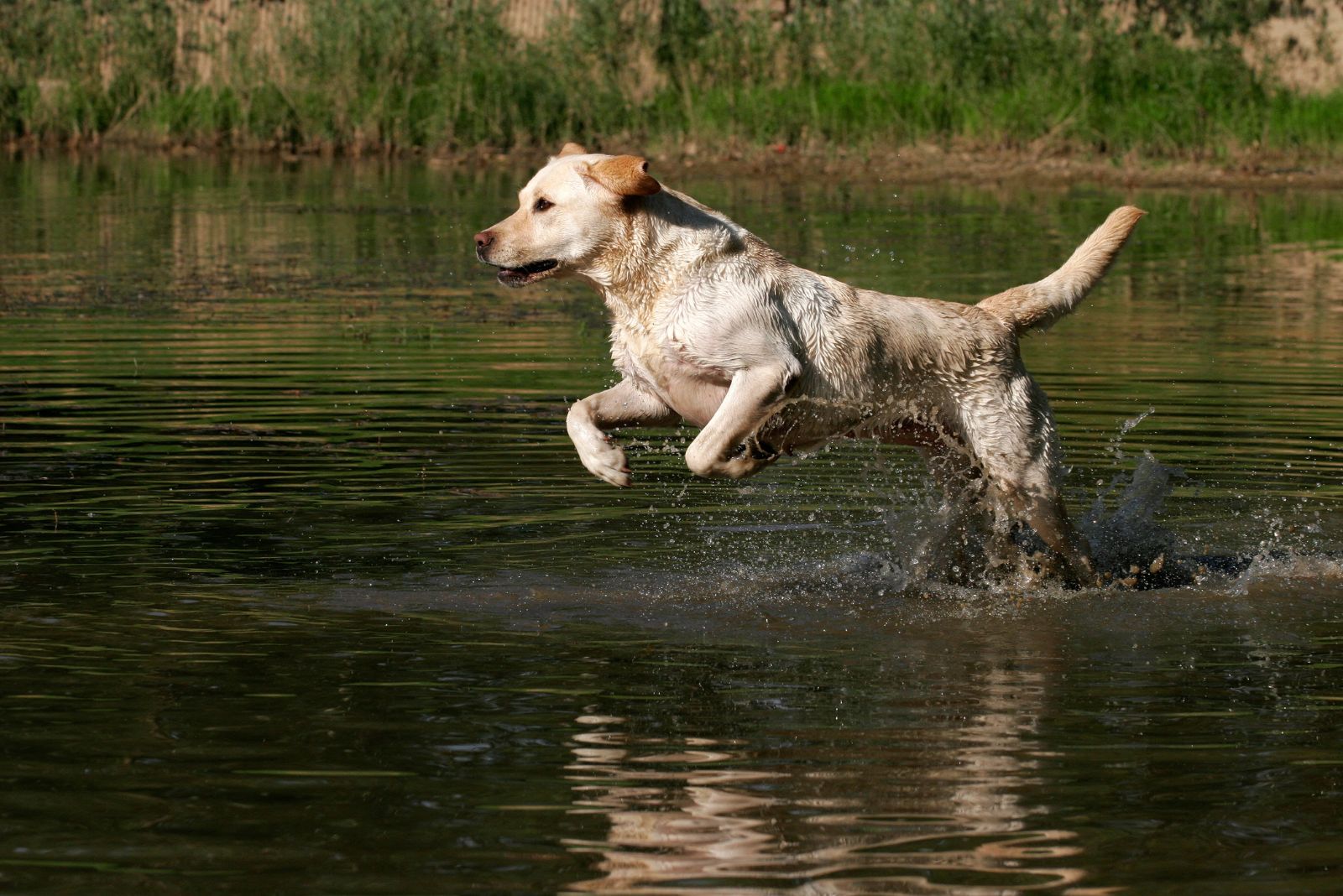
Labs are known for their seemingly endless supply of energy. These dogs are incredibly active and require a lot of physical and mental stimulation to stay happy and healthy. Without sufficient exercise, Labs can become bored and potentially destructive.
Whether it’s running, swimming, playing fetch, or just being outside exploring, Labs love to be on the move. As a result, they might get into mischief if not given enough attention. If you’re a couch potato or not prepared to take your dog on daily walks or engage in playtime, a Lab might not be the best match.
These dogs thrive when they’re active and involved in family activities, and their exuberance can be overwhelming for owners who aren’t ready to match their energy levels.



